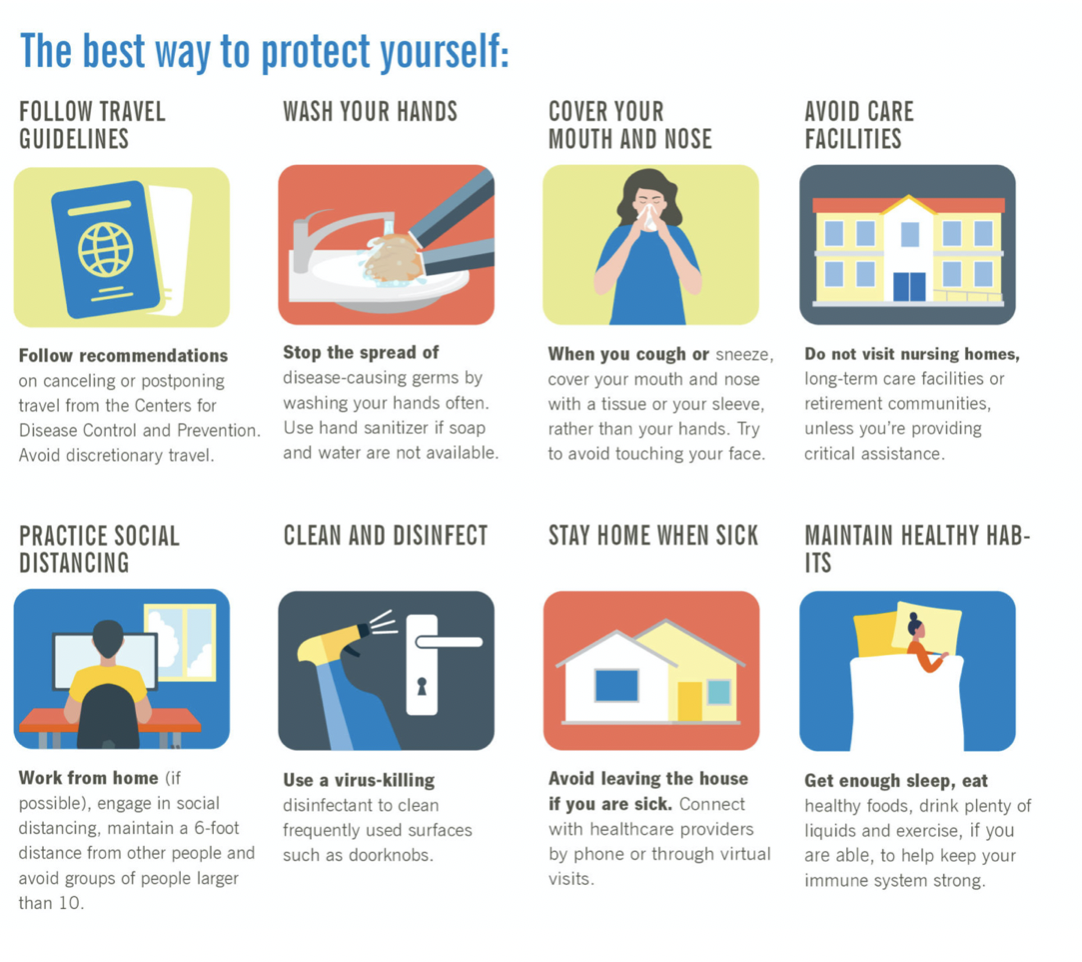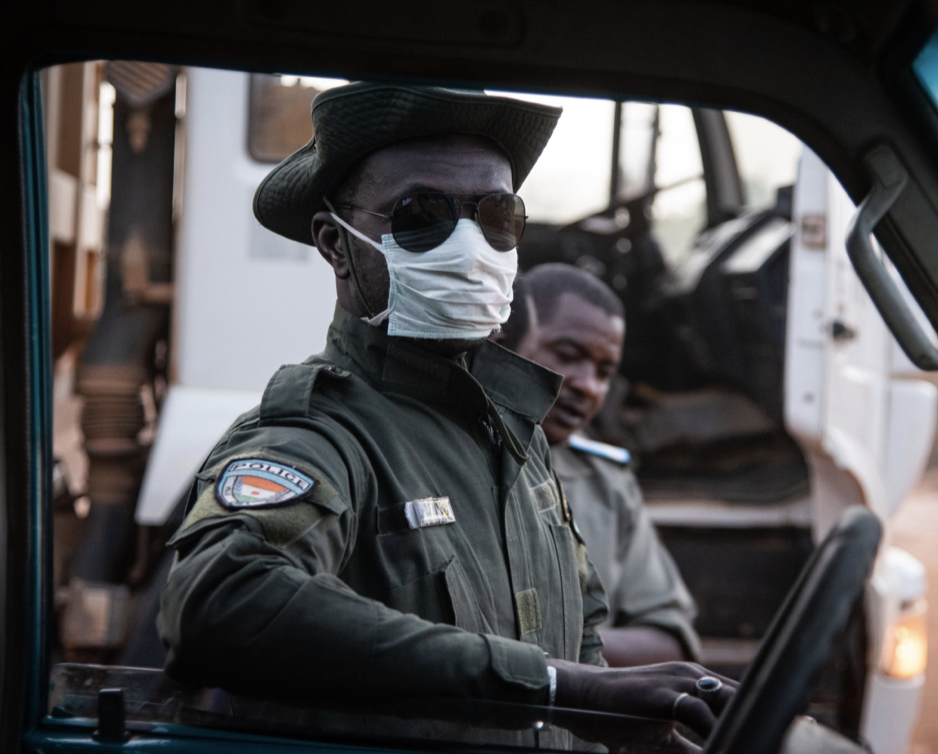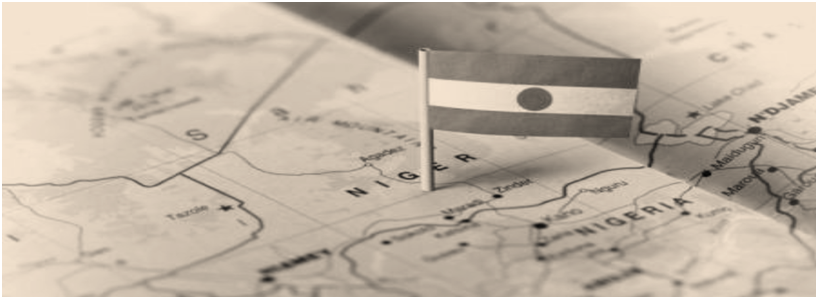
Weekly Highlights
- COVID-19: 2 cases at Agadez and one death recorded this Saturday 13th June 20
- Niger journalist Samira Sabou jailed, charged with cybercrime over Facebook post
- Statement released by US Ambassador Eric P. Whitaker: With Freedom and Justice for All
- Militant crackdown in Sahel leads to hundreds of civilian deaths – report
- Niger exchange rate – Exchange rates West African CFA franc – USD = 582.841 XOF XOF= 0.00171573 USD
EXECUTIVE SUMMARY
COVID-19: 2 cases at Agadez and one death recorded this Saturday 13th June 20
According to the update from the Ministry of Public Health on Saturday, June 13, two (2) positive cases with Covid-19 were recorded on 120 tests carried out. One (1) death has been recorded, bringing to 66 the total number of official victims of Covid-19 in Niger.
Niger journalist Samira Sabou jailed, charged with cybercrime over Facebook post
Authorities in Niger should immediately release journalist Samira Ibrahim Sabou and drop all charges against her, the Committee to Protect Journalists said today. Authorities arrested Sabou, editor with the privately owned Niger Search news website and manager of the Mides-Niger news website, on June 10 after she responded to a court summons, according to her lawyer, Abdou Léko Aboubacar, and Sahirou Youssoufou, secretary general of the Niger Press House, a local media association, both of whom spoke to CPJ over messaging app. The summons was issued in response to a defamation complaint filed by Sani Mahamadou Issoufou, the son and deputy chief of staff of Niger President Mahamadou Issoufou, according to Léko and Youssoufou.
Statement released by US Ambassador Eric P. Whitaker: With Freedom and Justice for All
Many in the United States and around the world watched with anguish at the May 25 death of George Floyd in Minneapolis. This absolutely preventable tragedy has led to protests in at least 350 cities across America as well as abroad – including here in Niamey. At the U.S. Embassy in Niger, we also witnessed with amazement these senseless killings and the ongoing protests, which sometimes led to vandalism and looting. The horrific video of his assassination is rightly shocking. We express our sincere condolences to the family and friends of Mr. Floyd for this tragic and deplorable act.
Militant crackdown in Sahel leads to hundreds of civilian deaths – report
Hundreds of civilians have been killed by their own governments in Africa’s Sahel region since countries pledged a surge against militant groups at a regional meeting held by France in January. Amnesty International said on Wednesday that it had documented 200 cases of unlawful state killings and forced disappearances in February and March in Burkina Faso, Mali and Niger, which are members of the internationally backed G5 force set up to fight militants in the Sahel. The Armed Conflict Location and Event Data Project (ACLED) said as of last week there had been 600 reported killings by state forces since the Pau meeting in January, which was called by France with the G5 after a series of losses to groups with links to Islamic State and al-Qaida.
Virtual meeting of the SWEDD project regional steering committee
The Minister of Population, Ms. Amadou Aissata Issa Maiga participated on Monday June 8, 2020, via videoconference, in the virtual meeting of the Regional Steering Committee with the President Pr. Mariétou Koné, also Ivorian Minister of Solidarity, of social cohesion and the fight against poverty. This special session convened at its initiative focused on the theme “Empowerment of women as an integrated strategy for response plans against COVID 19: perspectives for the SWEDD program”. The main objective of this virtual meeting is to examine the effects of the coronavirus pandemic on the empowerment of girls and women and the relevant actions likely to ensure the continuity of services and activities in the member countries of the SWEDD project.
USEFUL INFORMATION
List of holidays in Niger 2020
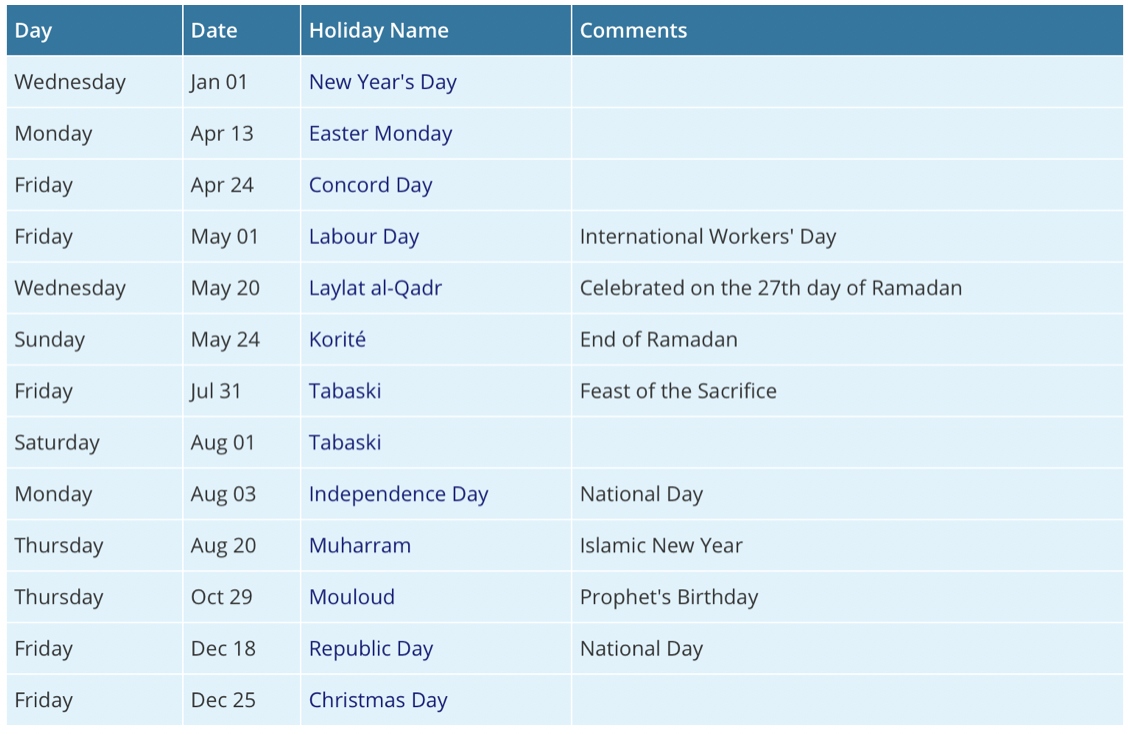
Exchange rates West African CFA franc
According to our most recent information (15th June 2020) the West African CFA franc has the following exchange rates.
The exchange rate from your own bank or credit card company will differ somewhat from the exchange rates as mentioned above. Your bank or credit card company might also apply additional international charges.
| USD = 582.841 XOF | XOF= 0.00171573 USD |
| EUR = 655.957 XOF | XOF= 0.00152449 EUR |
| **As at 15 June 2020 |
NIGER SECURITY & RISK LEVELS
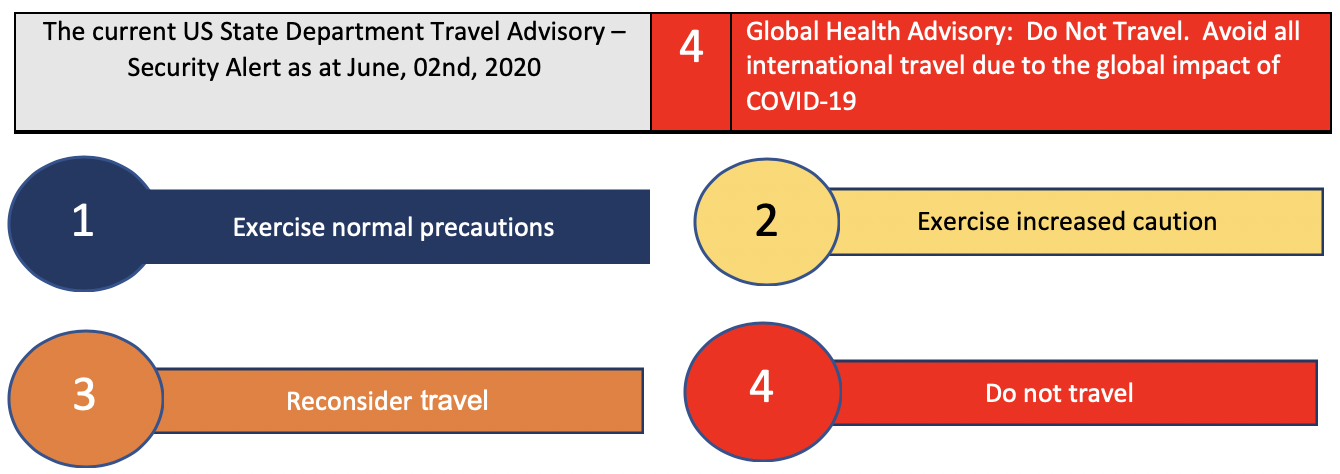
Location: Niger
Event: The Nigerien Ministry of Public Health has confirmed 958 cases of COVID-19 in Niger, including 65 deaths.
Niger’s land border closures remain in effect; they have been closed since March 19. Commercial international flights into Niger’s international airports have been cancelled until further notice.
Updates
Niger’s state of emergency for the entire country is in effect until July 11, 2020.
- As of June 1, all public schools have re-opened after being closed since March 20.
- As of May 29, bars and night clubs have been allowed to reopen.
- As of May 25, the ban on gatherings of at least 50 people, including workshops, seminars, and social ceremonies was lifted.
- As of May 25, Niger reinstated regular work hours (8am to 5pm Monday through Thursday and 8am to 1pm on Friday).
- As of May 15, the city of Niamey is no longer under a health confinement.
- As of May 13, places of worship including mosques and churches have re-opened, provided proper social distancing and hygiene measures are followed.
- As of May 13, the curfew that was in effect from 9 p.m. to 5 a.m. has been lifted.
- It is mandatory to wear a face mask or other objects that cover the mouth and nose while in public places. Everyone must also respect a distance of at least one meter between people in restaurants, businesses, and other public places.

NIGER INCIDENT MAPPING
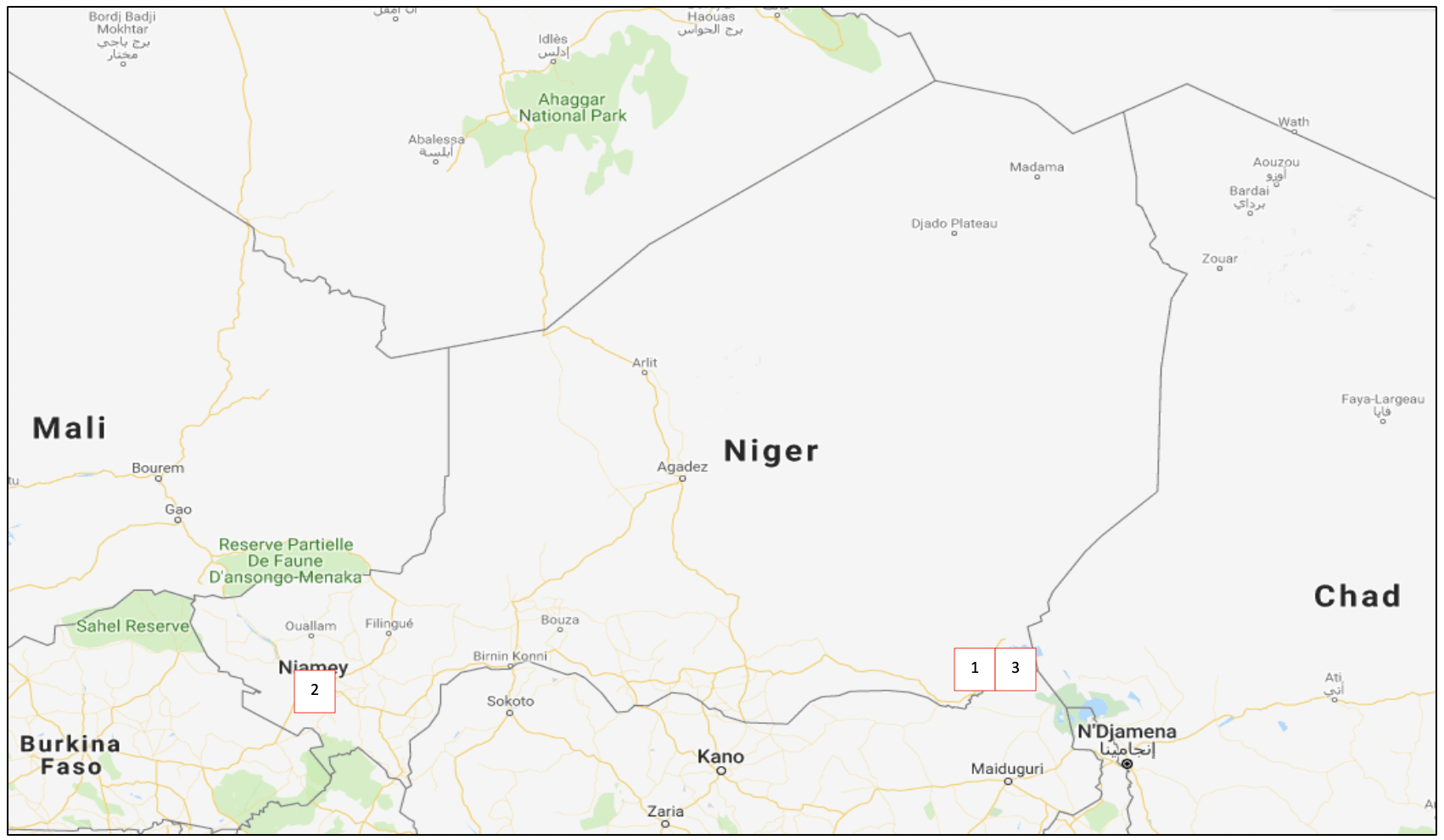
NIGER INCIDENTS IN DETAIL

Militant crackdown in Sahel leads to hundreds of civilian deaths – report
Hundreds of civilians have been killed by their own governments in Africa’s Sahel region since countries pledged a surge against militant groups at a regional meeting held by France in January. Amnesty International said on Wednesday that it had documented 200 cases of unlawful state killings and forced disappearances in February and March in Burkina Faso, Mali and Niger, which are members of the internationally backed G5 force set up to fight militants in the Sahel.
The Armed Conflict Location and Event Data Project (ACLED) said as of last week there had been 600 reported killings by state forces since the Pau meeting in January, which was called by France with the G5 after a series of losses to groups with links to Islamic State and al-Qaida. “You see a series of militant attacks and authorities who are inclined to show some kind of response carry out abuses and frame it as counter-terrorism success,” said Héni Nsaibia, senior researcher for ACLED. Nsaibia said some of the violence may be down to soldiers seeking vengeance for attacks they had witnessed, but that there was also a culture of impunity. “You don’t know who is sanctioning this state violence, at what level, but you see it happens across the [military] theatre, so because of that it seems the authorities have given a carte blanche,” he said. The Fulani pastoralist community had suffered in particular, Nsaibia said, because they have been accused of supporting and even joining the armed groups, which themselves attack and intimidate the community.
UN Security Council: Allegations against the armies of the Sahel won’t fly
Earlier this week, 59 civilians were killed by Islamic State terrorists in West Africa (EIAO), in northern Nigeria. We did not hear Amnesty International say a word on that date. On the other hand, we heard him shouting urbi et orbi that atrocities were committed by the armies of Niger, Mali and Burkina Faso against “civilian populations”. Based on simple testimonies collected from sources whose credibility is questionable, she announces, without blinking, that at least 200 civilians were victims of abuses between February and April last, according to a report she published this Wednesday.
These allegations have been systematically taken up by certain Western media. Each time, they take up what Amnesty said in a sort of indictment against our soldiers as if the words of this organization are necessarily true all the time. So, our armies are stigmatized. They are portrayed as human rights violators.
POLITICAL OVERVIEW
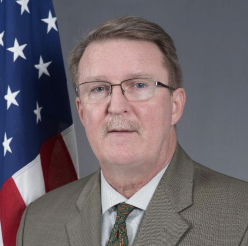
Many in the United States and around the world watched with anguish at the May 25 death of George Floyd in Minneapolis. This absolutely preventable tragedy has led to protests in at least 350 cities across America as well as abroad – including here in Niamey. At the U.S. Embassy in Niger, we also witnessed with amazement these senseless killings and the ongoing protests, which sometimes led to vandalism and looting. The horrific video of his assassination is rightly shocking. We express our sincere condolences to the family and friends of Mr. Floyd for this tragic and deplorable act.
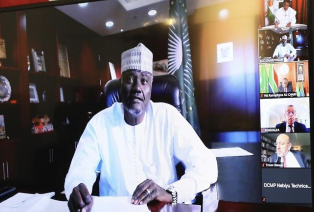
The President of the Republic, HE Mr. Issoufou Mahamadou, President in office of ECOWAS, participated on Thursday afternoon, June 11, 2020, in the second videoconference devoted to the health crisis of Covid-19 in Africa. This conference, chaired by the President in office of the African Union (AU), HE Cyril Ramaphosa, President of the Republic of South Africa, took place in the presence in particular of African Heads of State including the Presidents of the Communities regional leaders and the Chairperson of the AU Commission, Mr. Moussa Faki Mahamat. It allowed the participants to take stock of the evolution of the pandemic in Africa and to reflect on the continent’s strategy in the face of this coronavirus disease. In his speech, President Issoufou Mahamadou indicated that the Covid-19 pandemic will have serious socio-economic consequences on our continent.
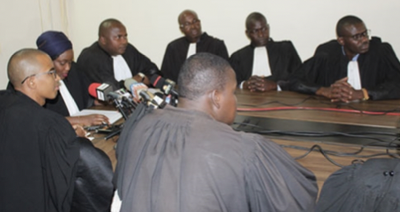
The Niger Bar Association is asking the President of the Republic on Tuesday to make effective the separation of powers and the asserted textual independence of the magistrates. In a declaration made public on June 9, the bar “aware of its role as the main actor in the public service of justice”, claims to be arrested by discussions between the Ministry of Justice and the autonomous union of magistrates of Niger (SAMAN). Noting that it first brought the two parties together to better inform themselves of the contests of this standoff, the Bar notes that it has noted “serious attacks on the principles of the separation of powers and the independence of the judiciary” , characterized in particular by the violation of the irrevocability of the magistrates of the seat.
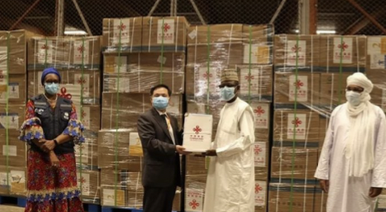
China has donated medical equipment worth around 360 million CFA francs to support Niger in its plan to fight the COVID-19 pandemic, the ANP noted. The Minister of Humanitarian Action and Disaster Management, Mr. Laouan Magagi, received this donation Wednesday June 10, 2020 at Diori Hamani International Airport in Niamey from the hands of the Chinese Ambassador to Niger, Mr. Zhang Lijun. This support is made up of 10,000 test kits; 20,000 protective masks; 350,000 surgical flaps; 10,000 protective suits; 15,000 protective glasses; 15,000 pairs of disposable gloves and 3,000 pairs of overshoes. The Minister of Humanitarian Action and Disaster Management, Mr. Laouan Magagi noted that “this gift from the Chinese Government will strengthen the capacity to diagnose cases and will therefore improve the care of several people with COVID-19”.
MEDICAL REQUIREMENTS AND INFORMATION
Vaccinations required to enter the country
Proof of vaccination against yellow fever is required over one year of age entering the country. The government of Niger recommends vaccine for travelers departing Niger.
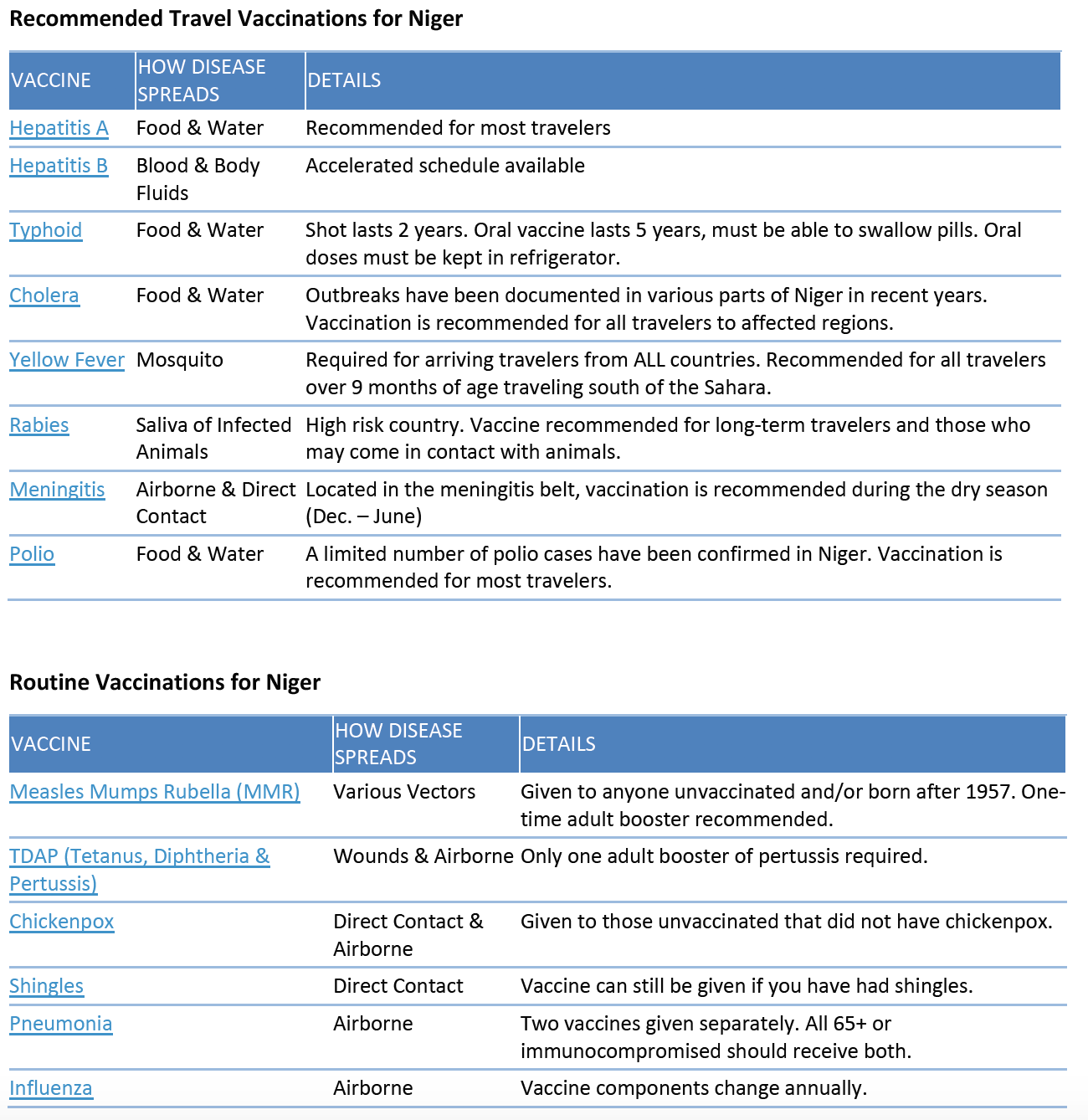
CORONAVIRUS DISEASE (COVID-19) ADVISE FOR THE PUBLIC
Wash your hands frequently
Regularly and thoroughly clean your hands with an alcohol-based hand rub or wash them with soap and water.
Why? Washing your hands with soap and water or using alcohol-based hand rub kills viruses that may be on your hands.
Maintain social distancing
Maintain at least 1 metre (3 feet) distance between yourself and anyone who is coughing or sneezing.
Why? When someone coughs or sneezes, they spray small liquid droplets from their nose or mouth which may contain virus. If you are too close, you can breathe in the droplets, including the COVID-19 virus if the person coughing has the disease.
Avoid touching eyes, nose and mouth
Why? Hands touch many surfaces and can pick up viruses. Once contaminated, hands can transfer the virus to your eyes, nose or mouth. From there, the virus can enter your body and can make you sick.
Practice respiratory hygiene
Make sure you, and the people around you, follow good respiratory hygiene. This means covering your mouth and nose with your bent elbow or tissue when you cough or sneeze. Then dispose of the used tissue immediately.
Why? Droplets spread virus. By following good respiratory hygiene, you protect the people around you from viruses such as cold, flu and COVID-19.
If you have fever, cough and difficulty breathing, seek medical care early
Stay home if you feel unwell. If you have a fever, cough and difficulty breathing, seek medical attention and call in advance. Follow the directions of your local health authority.
Why? National and local authorities will have the most up to date information on the situation in your area. Calling in advance will allow your health care provider to quickly direct you to the right health facility. This will also protect you and help prevent spread of viruses and other infections.
Stay informed and follow advice given by your healthcare provider
Stay informed on the latest developments about COVID-19. Follow advice given by your healthcare provider, your national and local public health authority or your employer on how to protect yourself and others from COVID-19.
Why? National and local authorities will have the most up to date information on whether COVID-19 is spreading in your area. They are best placed to advise on what people in your area should be doing to protect themselves.
Protection measures for persons who are in or have recently visited (past 14 days) areas where COVID-19 is spreading
Follow the guidance outlined above.
Stay at home if you begin to feel unwell, even with mild symptoms such as headache and slight runny nose, until you recover.
Why? Avoiding contact with others and visits to medical facilities will allow these facilities to operate more effectively and help protect you and others from possible COVID-19 and other viruses.
If you develop fever, cough and difficulty breathing, seek medical advice promptly as this may be due to a respiratory infection or other serious condition.
Call in advance and tell your provider of any recent travel or contact with travelers.
Why? Calling in advance will allow your health care provider to quickly direct you to the right health facility. This will also help to prevent possible spread of COVID-19 and other viruses.
